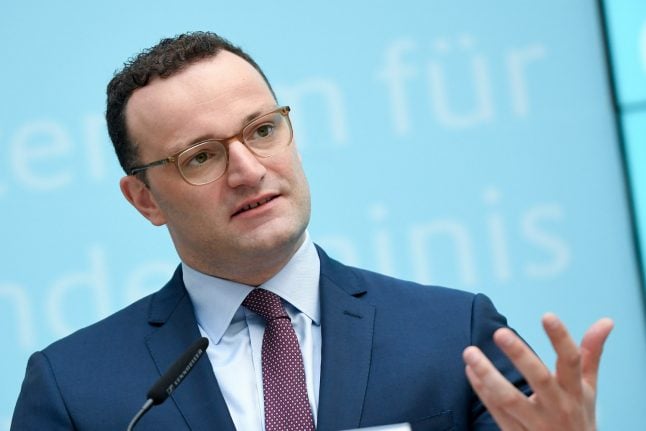“My position is clear: homosexuality is not an illness, which is why it does not need to be treated,” said Spahn, who is gay and married to a man.
“I would very much like to have a bill this year that could then be presented to parliament,” he told a Berlin press conference.
READ ALSO: Germany joins push to ban gay conversion therapies
Medical experts consider psychological or spiritual interventions to change someone's sexual orientation pseudo-scientific, ineffective and often harmful.
The most controversial techniques involve administering electric shocks as subjects view images of homosexual acts, or injections of the male hormone testosterone.
In Germany, there are an estimated 1,000 attempts a year to “re-educate” homosexuals – from family members, “coaches” and therapists, and sometimes involving prayers and even exorcisms, said Jörg Litwinschuh-Barthel of the anti-discrimination Magnus Hirschfeld Foundation.
Germany's LGBT community, which has long been calling for a ban, welcomed Spahn's announcement.
“This ban would, of course, be a signal to the people who propose (conversion therapies), but also to those affected who will know: 'what is being done to me is wrong',” said Markus Ulreich, a spokesman for the Lesbian and Gay Federation in Germany (LSVD).
Early last year the European Parliament adopted a non-binding text that called on EU members to ban the practice, something that so far only Malta and some Spanish regions have done.
READ ALSO: German priest calls homosexuality a sickness
Ban is possible
Spahn has commissioned two reports and a 46-member expert panel which have concluded that a ban is both “medically necessary and legally possible,” his ministry said.
Several people who underwent such therapies testified about their suffering to the panel, said the ministry in a statement.
One gay patient reported how during standard psychotherapy, the doctor suddenly declared sexual conversion a “therapy goal” and pursued it through “indoctrinating conversations”.
When electric shock treatment was also proposed, the patient terminated the treatment.
The health ministry said it plans to release a final report in August, to pave the way for a law to be written before the end of the year.




 Please whitelist us to continue reading.
Please whitelist us to continue reading.
Yeh, you might find prayer a far better choice! I mean really…where is common sense!!